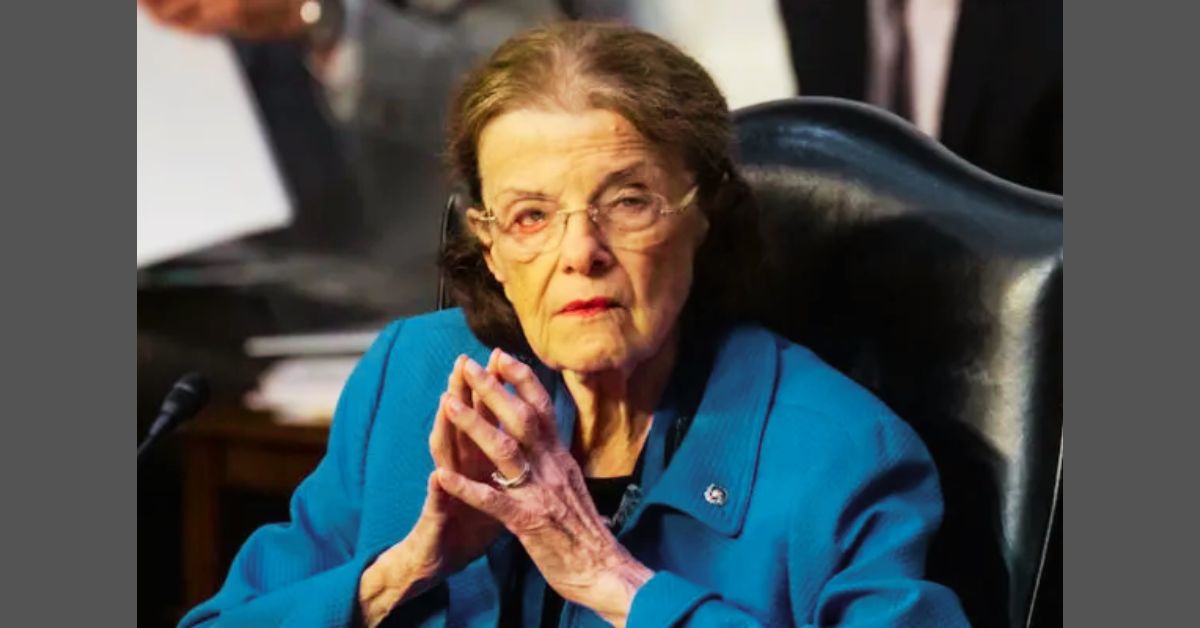Senator Feinstein Cause of Death: From Her Shining Career to a Farewell in Washington!
Longtime California senator Dianne Feinstein had significant health difficulties in her later years. After recovering from encephalitis, a rare shingles condition that causes brain inflammation and swelling, she missed nearly three months of the Senate earlier this year.
Her wheelchair was often seen in public after fainting at home in August and spending a short period in the hospital. Even before she reported health concerns in the year before she passed away, there had been signs for years that Feinstein, 90, had memory issues. Here are recent details about Senator Feinstein’s Cause of Death.
What Was Senator Feinstein Cause of Death?
Reporters were told by a number of Feinstein’s coworkers and former employees that she regularly forgot who she was talking to and repeated herself. When the Senate Appropriations Committee was voting in July, she appeared perplexed and started to make a prepared remark before the committee chair told her to “just say aye.”
A statement from Feinstein’s office today confirmed the tragic news of her passing. The statement began by saying that the late senator “left a legacy that was undeniable and extraordinary”:
“Sadly, Senator Feinstein passed away last night at her home in Washington, D.C. Her passing is a great loss for so many, from those who loved and cared for her to the people of California that she dedicated her life to serving. Senator Feinstein never backed away from a fight for what was just and right. At the same time, she was always willing to work with anyone, even those she disagreed with, if it meant bettering the lives of Californians or the betterment of our nation.”
“There are few women who can be called senator, chairman, mayor, wife, mom and grandmother. Senator Feinstein was a force of nature who made an incredible impact on our country and her home state. She left a legacy that is undeniable and extraordinary. There is much to say about who she was and what she did, but for now, we are going to grieve the passing of our beloved boss, mentor and friend.”
From the office of Senator Dianne Feinstein: pic.twitter.com/rvcAmVk8O0— Senator Dianne Feinstein (@SenFeinstein) September 29, 2023
Many people, including her political rivals, were saddened by the disclosure. In a lengthy reply, one of those opponents wrote, “Politics aside. I am deeply saddened by the passing of Sen. Dianne Feinstein. And I’m sure we all are.”
After noting that she “was a true trailblazer in U.S. politics while also the longest-serving woman in the Senate,” the X user concluded, “She will be deeply missed by family and fans of hers from all around the world. 😔 I hope both sides of the parties can come together today to show their respects. RIP 🙏🏻.” At 90, the Senator’s death is considered “natural causes.”
Feinstein insisted that she was mentally capable of serving out her fifth full term, and neither her office nor her family had ever acknowledged that she might be suffering from a neurological disorder.
On Friday, doctors said that dementia probably wasn’t what killed the senator, even if it was the reason of his apparent memory lapses. Most cases of dementia can be traced back to Alzheimer’s disease, a degenerative and persistent neurological disorder.
For more celebrity death-related news and articles, take a look at our trending posts:
- Stanley Myers Death: Online Tributes Pour In For The Military Judge
- Jo Lindner Cause of Death: The Heartbreaking Loss in the Fitness Community
In its later stages, when the illness starts to destroy brain regions that regulate vital bodily processes like breathing and swallowing, Alzheimer’s can be a direct cause of mortality.
Aspiration pneumonia, an infection in the lungs brought on by food or other foreign material that passes down the windpipe instead of the esophagus, is a common cause of mortality for patients with late-stage Alzheimer’s. As the condition progresses, the muscles that govern chewing and swallowing get weaker, increasing the danger.
By that time, patients are unable to continue even the most minimal of their prior activities. Doctors stressed that Feinstein’s medical history was needed to diagnose any neurological issues. She was not as ill as someone with advanced Alzheimer’s, even though her final Senate appearance shocked people who had grown accustomed to her throughout her long career.
We tried hard to give you useful information. Therefore, it would mean a lot to us if you would check out —where you may read articles that are directly related to your quest. If you have any questions or feedback, please don’t hesitate to let us know in the comments below.



